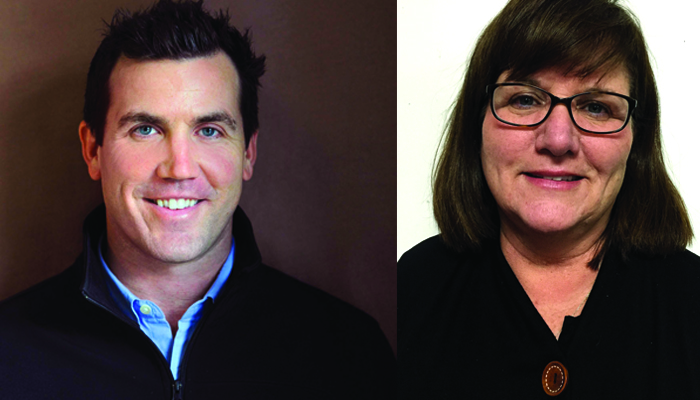In the fourth grade, while most kids were dreaming of becoming mad scientists, superstar chefs, or astronauts, Bernadette Mullen was dreaming of becoming a speech pathologist. She had made a friend who was deaf, and through that discovered her passion for the field before she was even old enough to see a PG-13 movie.
Fast forward a few years, and Bernadette got the chance to dip her toes into the sea of speech and language therapy via student teaching. She worked with a kindergarten class that had many students with communication disorders, and by day two she knew for certain this was her perfect fit. Now present day, and Bernadette has become fully immersed in her craft – with 35 years of experience in special education under her belt. She has owned and operated her own private practice, Speech Start p.a., for 18 years. The dedication she has to improving the lives of her students reverberates through every voice she’s helped uncover within children who never knew they had one.
Chris Dudick also knew his direction from a young age, which he found on the TV screen. He spent his college days studying the arts, and later earned a master’s degree in education, giving him an eclectic mix of knowledge that was destined to create great things.
He spent years working in production for children’s television before opening his own business, Small Factory Productions, where he’s free to flex those skills and explore his passion. The company gives children the opportunity to express their creativity while discovering the world of production through programs in the studio and programs inherited by over 60 schools, colleges, and hospitals across New York and New Jersey. Chris won an Emmy in 2012 for a cartoon series on current issues for youth, titled “Socially Conscious Cartoons,” which he produced and let the children make. Chris was also recently nominated for his work with the Geena Davis Institute on Gender in Media on “If You Can See It You Can Be It,” a campaign focused on bringing awareness to gender stereotypes in children’s media.
Chris also serves as an artist in residence at several hospitals through Artworks, The Naomi Cohain Foundation’s CAIR Program, where he helps inspire hospitalized children with life-threatening conditions to unleash their inner artist. Chris has blended the realms of education, artistry and technology into a learning equation that’s sure to bring out the best in any young mind.
So what do these two prolific makers have to do with each other? Well, they’ve both combined their extensive expertise into one groundbreaking program that’s the first of its kind: Socially Interactive Learning Avatar Software (SiLAS). The software allows children who struggle with communication and social skills to create avatars that represent themselves and send them into social interactions on screen, using headset microphones and video game controllers. The characters show the children how their actions play out in real life scenarios, giving them an interactive learning experience one would never find in a traditional textbook.
“Conventional schools don’t work for everyone, and many children with disabilities are very tech savvy even though they have trouble communicating,” said Chris.
Providing children with a creative platform to express themselves in ways they are more comfortable with has proven to enhance their overall development, especially for children on the autism spectrum.
“When you cannot communicate, it’s generally because you have some other larger disorder,” said Bernadette. “People who have trouble communicating cannot logically organize expressive language; they have an idea in their head of what they want to say, but they’re unable to fully express themselves.”
SiLAS lets children learn by example. Their avatars are their own representations of themselves, so they are actually watching themselves learn and grow through the program. This is much more motivating and reinforcing than workbook programs or other curriculum, and leaves more room for the constant interaction and rehearsal that is essential to the development of children with autism or social disabilities.
“Applications can provide learning opportunities, but they do not promote the practice and review of real life socialization and verbal exchange as SiLAS does,” said Chris.
Practice is the key to acquiring any skill, and this program gives children the real practice they need to cultivate the skills most people take for granted.
Chris and Bernadette will be illustrating the path to success that SiLAS shapes for struggling students at TEDxNavesink Makers on April 9. Join the conversation and grab your ticket today.

